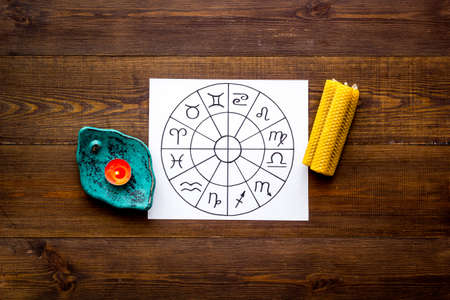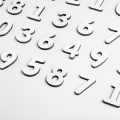Introduction to Astrology’s Cultural Relevance
In recent years, astrology has experienced a remarkable resurgence across the United States, captivating individuals from all walks of life. Once relegated to the fringes of mainstream culture, astrological practices have found new vitality and acceptance—especially among younger generations seeking meaning in an increasingly complex world. But beyond its broad cultural revival, astrology holds a particularly profound resonance within American LGBTQ+ communities. Here, the stars serve as guides for personal growth, tools for understanding identity, and pathways to self-acceptance. As society continues to grapple with issues of belonging and authenticity, astrology offers LGBTQ+ individuals a unique language through which they can explore their inner worlds, build community, and affirm their truths. This intersection of cosmic wisdom and personal journey forms the heart of astrology’s significance in queer spaces—a phenomenon that goes far beyond daily horoscopes or viral memes.
Astrology as a Tool for Identity Exploration
Within American LGBTQ+ communities, astrology often serves as a powerful mirror for self-reflection, inviting individuals to examine the unique constellation of traits, experiences, and desires that make up their identities. The language of astrology—birth charts, signs, planets, and houses—offers a symbolic framework that encourages people to look inward, question norms, and embrace diversity in all its forms. For many queer Americans navigating the complexities of gender and sexual orientation, astrology becomes more than just entertainment; it becomes a trusted companion on the path toward authenticity.
Astrological readings often validate personal experiences that mainstream narratives may overlook or dismiss. Through exploring sun, moon, and rising signs—or delving into Venus and Mars placements—LGBTQ+ individuals find new ways to articulate nuanced aspects of themselves. For example, someone who identifies as nonbinary might resonate with the duality or fluidity represented by mutable signs like Gemini or Pisces. Likewise, those exploring their sexuality may find comfort in Venus’s role in desire or Mars’s influence on action. This self-inquiry can foster acceptance, pride, and deeper connection within both oneself and the community.
How Astrology Supports Self-Discovery
| Astrological Element | Area of Identity Exploration | Common Insights for LGBTQ+ Individuals |
|---|---|---|
| Sun Sign | Core identity & life purpose | Understanding true self beyond societal roles |
| Moon Sign | Emotional needs & inner world | Affirming feelings around gender/sexual expression |
| Rising Sign | Public persona & first impressions | Exploring how others perceive nonconformity |
| Venus/Mars Placement | Desire, love & assertiveness | Navigating relationships outside heteronormative scripts |
| Mutable Signs (Gemini, Virgo, Sagittarius, Pisces) | Flexibility & changeability in identity | Normalizing fluidity in gender or sexual orientation |
The Power of Reflective Practice
This reflective practice is especially meaningful in environments where external validation can be scarce. By creating personalized narratives through astrological symbols, LGBTQ+ folks gain tools for healing past wounds and envisioning empowered futures. In group settings—like queer astrology meetups or online forums—sharing chart interpretations can spark conversations about intersectionality and collective liberation. Ultimately, astrology offers a safe space to experiment with pronouns, names, orientations, or relationship styles—all while feeling held by cosmic wisdom rather than rigid binaries.
![]()
3. Astrology, Queer Safe Spaces, and Online Communities
In the vibrant tapestry of American LGBTQ+ communities, astrology has emerged as a powerful tool for creating safe spaces and nurturing authentic connection. For many queer individuals, mainstream society can feel isolating or invalidating—especially when it comes to expressing unique identities and exploring paths of self-discovery. Here, astrology-based gatherings and dynamic online groups step in to fill that gap, offering affirming environments where every zodiac sign and lived experience is honored.
Across cities like San Francisco, New York, and Austin, queer-friendly astrology circles and meetups have blossomed. These gatherings are more than just star chart readings—they are sanctuaries where people share horoscopes, discuss cosmic cycles, and relate them to their own journeys of coming out, healing, or loving unapologetically. The language of astrology becomes a gentle invitation: “What’s your moon sign?” isn’t just small talk; it’s a pathway into deeper conversations about emotions, dreams, and chosen family.
Beyond physical spaces, the digital world has amplified astrology’s reach within LGBTQ+ circles. Social media platforms like Instagram, TikTok, and Twitter host thriving communities where queer astrologers share memes, birth chart analyses, and spiritual guidance tailored to diverse identities. Dedicated hashtags such as #QueerAstrology or #GayHoroscopes foster belonging for those who may not find acceptance in their immediate surroundings. In these online constellations, LGBTQ+ folks can ask questions about love compatibility, gender fluidity in birth charts, or how Mercury retrograde might affect queer relationships—with no fear of judgment.
For many, these spaces become lifelines—a constellation of support during times of uncertainty or celebration. Astrological language encourages vulnerability while validating the uniqueness of each person’s journey. Whether it’s a virtual full moon ritual or an in-person workshop on Venus placements for nonbinary identities, these communities help queer individuals see themselves reflected in the cosmos and in each other.
Ultimately, astrology-based gatherings and social media groups do more than predict futures; they empower LGBTQ+ Americans to write their own stories under the stars. By weaving together cosmic wisdom and radical acceptance, these safe havens continue to light the way toward self-love and collective healing.
4. Language, Symbols, and Queer Representation in Astrology
Astrology has always been a living language, evolving alongside the communities that embrace it. Within American LGBTQ+ spaces, astrological terminology and symbols have undergone a powerful reclamation—transforming centuries-old archetypes into affirmations of queer identity and self-love. This process goes far beyond simply reading your sun sign; it’s about rewriting cosmic narratives to reflect the vibrant spectrum of gender and sexuality.
Reclaiming Astrological Language
Many LGBTQ+ individuals have felt alienated by traditional language that can feel binary or heteronormative. In response, queer communities have begun to reinterpret astrological terms and houses in ways that resonate more authentically. For example, Venus is no longer just “feminine” energy, but can represent anyone’s relationship to love, pleasure, or beauty—regardless of gender. Mars isn’t limited to “masculinity,” but might symbolize action, desire, or the way one asserts themselves in the world.
Inclusiveness of Nonbinary Identities
Astrology’s expansive system allows for playful experimentation with identity. Many nonbinary and gender-nonconforming people are finding new ways to see themselves reflected in their charts. For instance, instead of relying solely on the gendered duality of Sun (yang) and Moon (yin), some astrologers now use additional celestial bodies like Chiron or Lilith to represent experiences outside the binary. Pronouns in horoscopes are being adapted too, embracing “they/them” or even using neopronouns to make readings feel safer and more validating.
Examples of Inclusive Astrological Language
| Traditional Term | Queer-Inclusive Reinterpretation |
|---|---|
| Venus (Feminine) | Love, pleasure, creative expression (all genders) |
| Mars (Masculine) | Drive, ambition, personal empowerment |
| Sun/Moon Binary | Spectrum of selfhood/inner world—beyond gender |
| He/She Pronouns in Readings | They/them or chosen pronouns throughout interpretations |
Personalized Horoscopes as Self-Discovery Tools
The rise of personalized horoscopes tailored for queer readers is another testament to astrology’s healing potential. These horoscopes celebrate diverse identities by addressing themes like coming out, navigating chosen family dynamics, and exploring nontraditional relationships. In many online spaces—from TikTok creators to indie zines—queer astrologers offer daily or weekly readings that speak directly to the lived realities of LGBTQ+ Americans.
The Transformational Power of Inclusive Astrology
This reclamation of language and symbolism isn’t just about representation; it’s a profound act of self-discovery. By seeing themselves mirrored in the stars—in all their complexity and color—LGBTQ+ individuals find comfort, affirmation, and an ever-expanding sense of possibility within astrology’s cosmic embrace.
5. Healing, Empowerment, and Destiny
For many LGBTQ+ Americans, astrology is much more than a casual interest—it becomes a wellspring of healing, self-acceptance, and affirmation. When traditional systems have failed to offer safe spaces or understanding, the language of the stars can feel like a gentle guide back home to oneself. In queer communities that have often faced exclusion and misunderstanding, astrology offers permission to be seen, heard, and celebrated just as they are.
Astrology as a Tool for Healing
The journey toward healing is deeply personal for every queer individual, often shaped by complex experiences with identity, family, and society. Astrology provides a comforting framework to process these feelings. Reading one’s birth chart can become an act of self-care—a moment to pause, reflect, and honor the unique path one walks. It encourages acceptance of every part of the self, including those that may not fit into mainstream expectations. Through planetary transits and lunar cycles, individuals find reassurance that change is natural and growth is possible.
Empowerment Through Self-Acceptance
Astrology doesn’t just offer comfort; it empowers. By exploring their charts, LGBTQ+ people discover strengths they never recognized or fully owned before. For example, a bold Aries moon might inspire courage in coming out stories, while a compassionate Pisces sun could illuminate the depth of empathy in chosen family dynamics. In decoding their cosmic blueprints, individuals uncover tools for resilience and pride—reminders that their identities are not only valid but powerful.
Affirming Queer Destinies
Perhaps most beautifully, astrology affirms that each person’s journey has purpose and meaning. The idea that everyone’s life follows a unique constellation of experiences resonates deeply within queer circles. Destiny isn’t fixed; it’s written in the choices we make and the love we give ourselves and others. Astrology whispers that being different is not an accident but a divine design—a call to live authentically and embrace one’s truth with confidence. In this way, the stars become guides not only for understanding but for celebrating the magic in every queer destiny.
6. Critiques and Community Conversations
While astrology has found a meaningful place within many American LGBTQ+ communities, it is not without its critics and ongoing debates. Some community members, as well as outside observers, question the accuracy and scientific validity of astrology. In mainstream American culture, skepticism about astrology often centers on its lack of empirical evidence and its reliance on generalized personality traits. Within LGBTQ+ spaces, these critiques are frequently discussed in community forums, social media groups, and queer-friendly events, sparking lively conversations about belief, identity, and personal agency.
It’s important to acknowledge that not everyone in the LGBTQ+ community embraces astrology wholeheartedly. For some, there is a concern that reliance on astrological labels could mirror the very boxes society tries to put queer individuals in—potentially limiting self-exploration rather than expanding it. Others worry that astrology might be used to stereotype or make assumptions about people based on their signs rather than seeing them for their authentic selves.
Despite these criticisms, many LGBTQ+ individuals view astrology less as a strict set of rules and more as a tool for reflection, connection, and creative self-expression. Community conversations often emphasize the importance of using astrology in ways that feel empowering rather than prescriptive. As one queer astrologer put it during an online panel discussion: “Astrology isn’t destiny; it’s an invitation—to reflect, to play, to imagine new possibilities for ourselves.” This perspective helps ensure that astrology remains a source of comfort and exploration without becoming dogmatic or exclusionary.
The ongoing debates within LGBTQ+ communities highlight the value placed on critical thinking and open dialogue. Many queer spaces encourage respectful questioning and invite diverse perspectives on spirituality and identity. These conversations can be healing in themselves, helping individuals navigate uncertainty while affirming each person’s right to define their own relationship with astrology—or to reject it altogether.
Ultimately, the evolving role of astrology within American LGBTQ+ communities is shaped by both passionate believers and thoughtful skeptics. Through these critiques and conversations, the practice continues to adapt, reflecting the dynamic spirit of queer culture—a space where identity is fluid, belonging is chosen, and every journey toward self-understanding is honored.
7. Conclusion: The Evolving Legacy of Astrology in LGBTQ+ American Life
As we reflect on the enduring presence of astrology within LGBTQ+ American communities, it becomes clear that its influence goes far beyond daily horoscopes or planetary memes. Astrology has woven itself into the fabric of queer life as a gentle yet powerful tool for self-discovery, affirmation, and connection. For generations, LGBTQ+ individuals have sought safe spaces to explore their identities—spaces where difference is not just accepted but celebrated. Astrology, with its language of cosmic diversity and intricate birth charts, offers a map for navigating both internal landscapes and shared experiences. In a world that often feels chaotic or unwelcoming, astrology provides structure, meaning, and validation for those who may feel unseen by mainstream narratives.
The legacy of astrology in queer American life is not static; it evolves with every conversation at a pride event, every meme shared in group chats, every late-night heart-to-heart about moon signs and Mercury retrograde. These rituals of connection foster community and remind us that there are infinite ways to be authentic. As new generations come out and claim their place in the constellation of identities, astrology’s relevance only deepens—serving as both a mirror for self-reflection and a bridge toward collective healing.
Ultimately, astrology’s magic lies in its ability to nurture hope and empower individuals to write their own destinies. In celebrating the diversity of queer experience, it affirms what so many in the LGBTQ+ community already know: that our differences are not flaws but sources of strength and beauty. As astrology continues to evolve alongside the ever-changing landscape of American queer life, it will remain a cherished guide—illuminating paths of belonging, resilience, and joyful self-expression.


